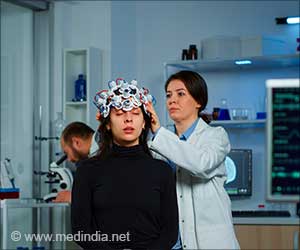Physicians' skills must evolve to use AI in healthcare decisions effectively.
- Many physicians lack the essential skills needed to interpret and act upon risk predictions generated by clinical decision support (CDS) algorithms
- To address this gap, the authors propose enhancing probabilistic skills through early education, integrating algorithmic output into decision-making processes, and providing practical learning experiences for medical students and physicians
- The University of Maryland is launching an Institute for Health Computing (IHC) to educate and train healthcare providers on the latest technologies
CDS Algorithm: A Great Tool for Professionals
CDS algorithms hold great potential to assist healthcare providers in making crucial decisions, such as prescribing antibiotics or recommending high-risk medical procedures. However, the new perspective article published in the New England Journal of Medicine by faculty at the University of Maryland School of Medicine highlights a significant challenge: many physicians lack the essential skills required to interpret and act upon the risk predictions generated by these tools. Clinical decision support algorithms operate in conditions of clinical uncertainty, ranging from basic risk calculators to advanced machine learning and artificial intelligence systems. They can predict outcomes like the likelihood of a patient developing life-threatening sepsis from an uncontrolled infection or the most effective therapy for an individual with heart disease to prevent sudden death.How can we address the Probabilistic Reasoning Gap?
To address this gap, the authors suggest incorporating explicit education on probabilistic reasoning tailored for CDS algorithms into medical education and clinical training. Their proposed recommendations include:Enhancing Probabilistic Skills:
Medical students should receive early education on fundamental probability concepts and uncertainty, using visualization techniques to make thinking in terms of probability more intuitive. This training should encompass interpreting performance measures like sensitivity and specificity to grasp test and algorithm effectiveness.
Integrating Algorithmic Output into Decision Making:
Physicians should be trained to critically evaluate and apply CDS predictions in their clinical decision-making processes. This involves understanding the context in which algorithms operate, and recognizing their limitations, and considering relevant patient factors that algorithms may overlook.
Practicing CDS Interpretation in Applied Learning:
Medical students and physicians should engage in practical learning experiences by applying algorithms to individual patient cases and exploring how different inputs influence predictions. Additionally, they should learn effective communication with patients regarding CDS-guided decision-making.
Dr. Katherine Goodman, one of the authors, will contribute to the IHC's mission to educate and train healthcare providers on the latest technologies. The Institute intends to offer formal educational opportunities in data sciences, including a certification in health data science.
In conclusion, as clinical decision support algorithms and artificial intelligence systems become increasingly integrated into healthcare, it is evident that they hold immense promise in assisting physicians with complex decision-making processes. However, it's crucial to emphasize that AI should be viewed as a valuable tool, much like other medical equipment and devices, rather than a replacement for doctors (1✔ ✔Trusted Source
Artificial intelligence with multi-functional machine learning platform development for better healthcare and precision medicine
Go to source).
Physicians play an irreplaceable role in patient care, providing the essential human touch, empathy, and the ability to consider unique patient circumstances that algorithms may not capture. AI can enhance medical practice by offering data-driven insights, aiding in diagnosis, and optimizing treatment plans, but it should always work in harmony with the expertise and judgment of healthcare professionals.
The collaboration between AI and doctors represents a powerful synergy, where AI empowers physicians with information, helps them make more informed decisions, and ultimately leads to improved patient outcomes. To fully harness this potential, it is imperative that medical education and training programs adapt to equip healthcare providers with the necessary skills to leverage AI effectively, thus ensuring that the future of healthcare remains a fusion of cutting-edge technology and compassionate human care.
Reference:
- Artificial intelligence with multi-functional machine learning platform development for better healthcare and precision medicine - (https://www.ncbi.nlm.nih.gov/pmc/articles/PMC7078068/)
Source-Medindia













